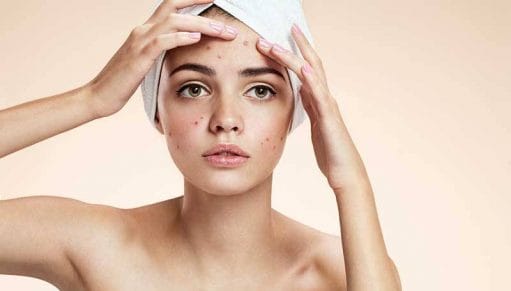-
×
 Friends Adult Diaper M
1 × 397.00 ₹
Friends Adult Diaper M
1 × 397.00 ₹ -
×
 TYNOR Exercising Ball - Ortho
1 × 99.91 ₹
TYNOR Exercising Ball - Ortho
1 × 99.91 ₹ -
×
 TYNOR Finger Cot - Large
1 × 137.74 ₹
TYNOR Finger Cot - Large
1 × 137.74 ₹ -
×
 TYNOR Silicon Toe Separator - Small (Pair)
1 × 149.38 ₹
TYNOR Silicon Toe Separator - Small (Pair)
1 × 149.38 ₹ -
×
 TYNOR Elbow Support - Medium
1 × 184.30 ₹
TYNOR Elbow Support - Medium
1 × 184.30 ₹ -
×
 TYNOR Wrist Brace with Thumb - Universal
1 × 189.00 ₹
TYNOR Wrist Brace with Thumb - Universal
1 × 189.00 ₹ -
×
 TYNOR D-19 Skin Friendly Pattelar Support- Universal size
1 × 193.03 ₹
TYNOR D-19 Skin Friendly Pattelar Support- Universal size
1 × 193.03 ₹ -
×
 TYNOR Tubular Elastic Bandage - 1 meter (Beige, F-100mm)
1 × 208.55 ₹
TYNOR Tubular Elastic Bandage - 1 meter (Beige, F-100mm)
1 × 208.55 ₹ -
×
 TYNOR Finger Extension Splint - Medium
1 × 226.98 ₹
TYNOR Finger Extension Splint - Medium
1 × 226.98 ₹ -
×
 TYNOR Skin Friendly Pattelar Support- Universal size
1 × 232.80 ₹
TYNOR Skin Friendly Pattelar Support- Universal size
1 × 232.80 ₹ -
×
 FLAMINGO Flamitape 7.5cm x 5m
1 × 237.50 ₹
FLAMINGO Flamitape 7.5cm x 5m
1 × 237.50 ₹ -
×
 ZANDU Tribangshila Tablet
1 × 63.65 ₹
ZANDU Tribangshila Tablet
1 × 63.65 ₹ -
×
 BAIDYANATH Chandrakala Ras Tablet
1 × 101.65 ₹
BAIDYANATH Chandrakala Ras Tablet
1 × 101.65 ₹ -
×
 VYAS Gudmar Churna powder Pack of 2
2 × 134.40 ₹
VYAS Gudmar Churna powder Pack of 2
2 × 134.40 ₹ -
×
 Sugar Free Natura Low Calorie Sucralose Sweetener 200 Pellets-Zydus Wellness Product Ltd
3 × 135.00 ₹
Sugar Free Natura Low Calorie Sucralose Sweetener 200 Pellets-Zydus Wellness Product Ltd
3 × 135.00 ₹ -
×
 Sugar Free Gold Low Calorie Sweetener 100gm Zydus Wellness Product Ltd
1 × 142.00 ₹
Sugar Free Gold Low Calorie Sweetener 100gm Zydus Wellness Product Ltd
1 × 142.00 ₹ -
×
 Softovac SF Sugar Free Bowel Regulator Powder-Lupin
2 × 168.00 ₹
Softovac SF Sugar Free Bowel Regulator Powder-Lupin
2 × 168.00 ₹ -
×
 Dabur Madhurakshak Activ_DABUR INDIA
1 × 190.00 ₹
Dabur Madhurakshak Activ_DABUR INDIA
1 × 190.00 ₹ -
×
 Perennial Lifesciences Organic Green Coffee Beans (Decaffeinated & Unroasted) Powder
1 × 269.10 ₹
Perennial Lifesciences Organic Green Coffee Beans (Decaffeinated & Unroasted) Powder
1 × 269.10 ₹ -
×
 Sugar Free Gold Low Calorie Sweetener_Zydus Wellness
1 × 285.00 ₹
Sugar Free Gold Low Calorie Sweetener_Zydus Wellness
1 × 285.00 ₹ -
×
 Novofine 31G Needle-1 Needle-Novo Nordisk India Pvt Ltd
1 × 15.00 ₹
Novofine 31G Needle-1 Needle-Novo Nordisk India Pvt Ltd
1 × 15.00 ₹ -
×
 Doctors' Choice Sterile Disposable Surgical Latex Gloves 7.0
1 × 42.75 ₹
Doctors' Choice Sterile Disposable Surgical Latex Gloves 7.0
1 × 42.75 ₹ -
×
 DOCTORS CHOICE Absorbable Medical Underpad 60 X 90 cms
1 × 57.00 ₹
DOCTORS CHOICE Absorbable Medical Underpad 60 X 90 cms
1 × 57.00 ₹ -
×
 DOCTORS CHOICE Micropors Surgical tape 3 inch
1 × 96.90 ₹
DOCTORS CHOICE Micropors Surgical tape 3 inch
1 × 96.90 ₹ -
×
 Naulakha Urine Pot for Male Pkt 27 2 IN 1 (Large)
1 × 117.00 ₹
Naulakha Urine Pot for Male Pkt 27 2 IN 1 (Large)
1 × 117.00 ₹ -
×
 DOCTORS CHOICE Knee Support Regular Medium
1 × 118.75 ₹
DOCTORS CHOICE Knee Support Regular Medium
1 × 118.75 ₹ -
×
 DOCTORS CHOICE Wet wipes Alcohol Free 10's
1 × 123.50 ₹
DOCTORS CHOICE Wet wipes Alcohol Free 10's
1 × 123.50 ₹ -
×
 Smart Care Crepe Bandage Premium 6cm*4Mtr
1 × 144.00 ₹
Smart Care Crepe Bandage Premium 6cm*4Mtr
1 × 144.00 ₹ -
×
 ZANDU Sudarshan Tablet
1 × 52.25 ₹
ZANDU Sudarshan Tablet
1 × 52.25 ₹ -
×
 New & Improved Supradyn Daily Multivitamin Tablet_Bayer Pharma
1 × 55.00 ₹
New & Improved Supradyn Daily Multivitamin Tablet_Bayer Pharma
1 × 55.00 ₹ -
×
 Dabur Giloy Ki Ghanvati tablet
1 × 81.00 ₹
Dabur Giloy Ki Ghanvati tablet
1 × 81.00 ₹ -
×
 Zufa Syrup 200ml
1 × 109.25 ₹
Zufa Syrup 200ml
1 × 109.25 ₹ -
×
 Dabur Ashwagandhadi Lehya_DABUR INDIA
1 × 123.50 ₹
Dabur Ashwagandhadi Lehya_DABUR INDIA
1 × 123.50 ₹ -
×
 SRI SRI TATTVA Immugen 500mg Tablet
1 × 133.00 ₹
SRI SRI TATTVA Immugen 500mg Tablet
1 × 133.00 ₹ -
×
 ZANDU Sudarshan Ghan Vati Pack of 2
1 × 151.05 ₹
ZANDU Sudarshan Ghan Vati Pack of 2
1 × 151.05 ₹ -
×
 HIMALAYA Wellness Pure Herbs Guduchi Immunity Wellness Tablet
1 × 159.00 ₹
HIMALAYA Wellness Pure Herbs Guduchi Immunity Wellness Tablet
1 × 159.00 ₹ -
×
 KERALA AYURVEDA Narasimha Rasayanam paste
1 × 172.98 ₹
KERALA AYURVEDA Narasimha Rasayanam paste
1 × 172.98 ₹ -
×
 Patanjali Shatavar Churna
1 × 175.00 ₹
Patanjali Shatavar Churna
1 × 175.00 ₹ -
×
 Control D Digital Thermometer 1 unit
2 × 211.65 ₹
Control D Digital Thermometer 1 unit
2 × 211.65 ₹ -
×
 Aiqura AD801 Forehead Infra Red Thermometer 1 unit
1 × 4,675.00 ₹
Aiqura AD801 Forehead Infra Red Thermometer 1 unit
1 × 4,675.00 ₹ -
×
 Dikang HGB01 Forehead Infra Red Thermometer 1 unit
1 × 5,949.15 ₹
Dikang HGB01 Forehead Infra Red Thermometer 1 unit
1 × 5,949.15 ₹ -
×
 Landwind LW FT118 Non-Contact Digital Infra Red Thermometer 1 unit
1 × 6,375.00 ₹
Landwind LW FT118 Non-Contact Digital Infra Red Thermometer 1 unit
1 × 6,375.00 ₹ -
×
 Health Sense JA 11A Yasee Digital Infra Red Thermometer 1 unit
1 × 6,799.15 ₹
Health Sense JA 11A Yasee Digital Infra Red Thermometer 1 unit
1 × 6,799.15 ₹ -
×
 Floh Infra Red Thermometer 1 unit
1 × 6,799.15 ₹
Floh Infra Red Thermometer 1 unit
1 × 6,799.15 ₹ -
×
 Jumper JPD FR202 Infra Red Thermometer 1 unit
1 × 6,800.00 ₹
Jumper JPD FR202 Infra Red Thermometer 1 unit
1 × 6,800.00 ₹ -
×
 Dr.Sanaya IR988 Non Contact Infra Red Thermometer 1 unit
1 × 7,649.15 ₹
Dr.Sanaya IR988 Non Contact Infra Red Thermometer 1 unit
1 × 7,649.15 ₹ -
×
 MCP Medical Infra Red Forehead Thermometer for Baby & Adult 1 unit
1 × 12,749.15 ₹
MCP Medical Infra Red Forehead Thermometer for Baby & Adult 1 unit
1 × 12,749.15 ₹ -
×
 TYNOR Thigh Support - Large
4 × 299.00 ₹
TYNOR Thigh Support - Large
4 × 299.00 ₹ -
×
 Dr Morepen Breathe Free Vaporizer VP 06-Morepen Laboratories Ltd
2 × 350.00 ₹
Dr Morepen Breathe Free Vaporizer VP 06-Morepen Laboratories Ltd
2 × 350.00 ₹ -
×
 Friends Premium Adult Diaper Pants Medium-Nobel Hygiene Ltd
2 × 499.00 ₹
Friends Premium Adult Diaper Pants Medium-Nobel Hygiene Ltd
2 × 499.00 ₹ -
×
 Omron Compressor Nebulizer NE-C106 White-Omron Healthcare India Pvt Ltd
1 × 1,699.00 ₹
Omron Compressor Nebulizer NE-C106 White-Omron Healthcare India Pvt Ltd
1 × 1,699.00 ₹ -
×
 Mediwave Anti Lice Treatment Shampoo 50ml_Smart Laboratories
1 × 54.00 ₹
Mediwave Anti Lice Treatment Shampoo 50ml_Smart Laboratories
1 × 54.00 ₹ -
×
 Navratna Ayurvedic Cool Hair Oil 100ml
1 × 74.10 ₹
Navratna Ayurvedic Cool Hair Oil 100ml
1 × 74.10 ₹ -
×
 SRI SRI TATTVA Hydrating Conditioner Pack of 2
1 × 96.00 ₹
SRI SRI TATTVA Hydrating Conditioner Pack of 2
1 × 96.00 ₹ -
×
 Oligro Oil-Leeford Healthcare Ltd
1 × 99.00 ₹
Oligro Oil-Leeford Healthcare Ltd
1 × 99.00 ₹ -
×
 SRI SRI TATTVA Anu Taila Nasal Drops Pack of 2
1 × 105.60 ₹
SRI SRI TATTVA Anu Taila Nasal Drops Pack of 2
1 × 105.60 ₹ -
×
 SRI SRI TATTVA Brahmi Bhringaraj Taila
1 × 115.20 ₹
SRI SRI TATTVA Brahmi Bhringaraj Taila
1 × 115.20 ₹ -
×
 Haironic Oil
1 × 119.60 ₹
Haironic Oil
1 × 119.60 ₹ -
×
 HealthVit Natural Amla (Emblica Officinal's) Powder
1 × 121.50 ₹
HealthVit Natural Amla (Emblica Officinal's) Powder
1 × 121.50 ₹ -
×
 HIMALAYA Wellness Pure Herbs Vrikshamla Weight Wellness Tablet
1 × 205.00 ₹
HIMALAYA Wellness Pure Herbs Vrikshamla Weight Wellness Tablet
1 × 205.00 ₹ -
×
 Majestic Green Coffee - for weight loose, without Milk & Suger - 25 Sachets (Pack of 1) for obesity
1 × 225.00 ₹
Majestic Green Coffee - for weight loose, without Milk & Suger - 25 Sachets (Pack of 1) for obesity
1 × 225.00 ₹ -
×
 ORGANIC INDIA Tulsi Green Tea Tin Classic
1 × 225.40 ₹
ORGANIC INDIA Tulsi Green Tea Tin Classic
1 × 225.40 ₹ -
×
 Abhay MEDARI Slim Fit Tablets Weight Loss Supplement and Effective Fatrid (60 Tablets) for obesity
1 × 254.00 ₹
Abhay MEDARI Slim Fit Tablets Weight Loss Supplement and Effective Fatrid (60 Tablets) for obesity
1 × 254.00 ₹ -
×
 Slim Tabs Tablet-60 tablets-Unifarma Global Consumer Health Care Pvt Ltd
1 × 259.00 ₹
Slim Tabs Tablet-60 tablets-Unifarma Global Consumer Health Care Pvt Ltd
1 × 259.00 ₹ -
×
 Neuherbs Organic Green Coffee Beans 200gm
1 × 265.00 ₹
Neuherbs Organic Green Coffee Beans 200gm
1 × 265.00 ₹ -
×
 Kapiva Ayurveda Diafree Juice
1 × 315.00 ₹
Kapiva Ayurveda Diafree Juice
1 × 315.00 ₹ -
×
 Mystic Range Premium Arabica Green Coffee Beans for Weight Loss | 100% Premium Arabica, Unroasted & best green coffee beans | Fat Burn, Healthy Skin & Detox (Pouch - 200 g) for obesity
1 × 337.50 ₹
Mystic Range Premium Arabica Green Coffee Beans for Weight Loss | 100% Premium Arabica, Unroasted & best green coffee beans | Fat Burn, Healthy Skin & Detox (Pouch - 200 g) for obesity
1 × 337.50 ₹ -
×
 HIMALAYA Weight Management Combo PACK (Ayurslim 60 Capsules & Vrikshamla 60 Tablets)
1 × 356.25 ₹
HIMALAYA Weight Management Combo PACK (Ayurslim 60 Capsules & Vrikshamla 60 Tablets)
1 × 356.25 ₹ -
×
 Amrita Lemon Herbal Tea
1 × 394.25 ₹
Amrita Lemon Herbal Tea
1 × 394.25 ₹ -
×
 Alexvyan Slim CYSLIM Me Ayurvedic Herbal Extract 500mg Veggie 60 Capsules, Slim 100% Natural Maximum Potency 100% Lifetime Money Back Guarantee-order Risk Free! Reduce Fat for obesity
1 × 405.00 ₹
Alexvyan Slim CYSLIM Me Ayurvedic Herbal Extract 500mg Veggie 60 Capsules, Slim 100% Natural Maximum Potency 100% Lifetime Money Back Guarantee-order Risk Free! Reduce Fat for obesity
1 × 405.00 ₹ -
×
 Mederma Stretch Marks Therapy 25gm_Win Medicare
2 × 546.00 ₹
Mederma Stretch Marks Therapy 25gm_Win Medicare
2 × 546.00 ₹ -
×
 Clean & Dry Cream 15gm_Midascare Pharma
2 × 99.00 ₹
Clean & Dry Cream 15gm_Midascare Pharma
2 × 99.00 ₹ -
×
 Clean and Dry Feminine Intimate Powder-100gm-MidasCare Pharmaceuticals Pvt Ltd
1 × 140.00 ₹
Clean and Dry Feminine Intimate Powder-100gm-MidasCare Pharmaceuticals Pvt Ltd
1 × 140.00 ₹ -
×
 Clean and Dry Intimate Clotrimazole Cream 15GM-MidasCare Pharma
1 × 99.00 ₹
Clean and Dry Intimate Clotrimazole Cream 15GM-MidasCare Pharma
1 × 99.00 ₹ -
×
 Glowmen Coffee Matt Finish Face Wash 60 gm-Smart Labs
5 × 75.00 ₹
Glowmen Coffee Matt Finish Face Wash 60 gm-Smart Labs
5 × 75.00 ₹ -
×
 Sugar Free Gold Plus Sweetener 500 Pellets-Zydus Wellness Product Ltd
2 × 299.00 ₹
Sugar Free Gold Plus Sweetener 500 Pellets-Zydus Wellness Product Ltd
2 × 299.00 ₹ -
×
 Dr Ortho Knee Cap
2 × 355.00 ₹
Dr Ortho Knee Cap
2 × 355.00 ₹ -
×
 Arnopen Ointment 25gm-S G Phyto Pharma Pvt Ltd
1 × 69.00 ₹
Arnopen Ointment 25gm-S G Phyto Pharma Pvt Ltd
1 × 69.00 ₹ -
×
 S Compound Capsule – Joint Pain & Arthritis Relief
1 × 399.00 ₹
S Compound Capsule – Joint Pain & Arthritis Relief
1 × 399.00 ₹ -
×
 Sensur Lotion for pain relief 50ml-Integrace Pvt Ltd
1 × 165.00 ₹
Sensur Lotion for pain relief 50ml-Integrace Pvt Ltd
1 × 165.00 ₹ -
×
 Allen Calcitone Calcium Syrup
1 × 81.00 ₹
Allen Calcitone Calcium Syrup
1 × 81.00 ₹ -
×
 Himalaya Wellness Pain Balm Strong 10gm
1 × 43.00 ₹
Himalaya Wellness Pain Balm Strong 10gm
1 × 43.00 ₹ -
×
 3M Littmann Classic II Pediatric Stethoscope, Caribbean Blue Tube, 28 inch, 2119
1 × 8,365.50 ₹
3M Littmann Classic II Pediatric Stethoscope, Caribbean Blue Tube, 28 inch, 2119
1 × 8,365.50 ₹ -
×
 Sara Care Sarapore Microporus Tape (5 Meter)
1 × 283.50 ₹
Sara Care Sarapore Microporus Tape (5 Meter)
1 × 283.50 ₹ -
×
 Philips Respironics CPAP Dreamstation Device
1 × 81,963.00 ₹
Philips Respironics CPAP Dreamstation Device
1 × 81,963.00 ₹ -
×
 Rossmax GB101 Aneroid BP Monitor
1 × 900.00 ₹
Rossmax GB101 Aneroid BP Monitor
1 × 900.00 ₹ -
×
 Romsons Mattey Underpads
1 × 509.00 ₹
Romsons Mattey Underpads
1 × 509.00 ₹ -
×
 Dr Physio Manipol Massager-Nureca Limited, India
2 × 1,999.00 ₹
Dr Physio Manipol Massager-Nureca Limited, India
2 × 1,999.00 ₹ -
×
 i-activ Period Panty L XL-Piramal Enterprises Ltd
2 × 465.00 ₹
i-activ Period Panty L XL-Piramal Enterprises Ltd
2 × 465.00 ₹ -
×
 TYNOR Knee Cap with Patellar Ring - Small (Pair)
1 × 459.78 ₹
TYNOR Knee Cap with Patellar Ring - Small (Pair)
1 × 459.78 ₹ -
×
 FLAMINGO Lumbar Sacro Belt XL
1 × 665.00 ₹
FLAMINGO Lumbar Sacro Belt XL
1 × 665.00 ₹ -
×
 FLAMINGO HC-1010 Cool Pack L
1 × 342.00 ₹
FLAMINGO HC-1010 Cool Pack L
1 × 342.00 ₹ -
×
 FLAMINGO Orthopaedic Heating Belt Mini
1 × 589.00 ₹
FLAMINGO Orthopaedic Heating Belt Mini
1 × 589.00 ₹ -
×
 Moov Cool Therapy Gel 20GM-Reckitt Benckiser Healthcare Pvt. Ltd.
6 × 99.00 ₹
Moov Cool Therapy Gel 20GM-Reckitt Benckiser Healthcare Pvt. Ltd.
6 × 99.00 ₹ -
×
 Vicks VapoRub Steam Pods-10 Capsules
3 × 179.00 ₹
Vicks VapoRub Steam Pods-10 Capsules
3 × 179.00 ₹ -
×
 Horlicks Womens Plus Chocolate
5 × 349.00 ₹
Horlicks Womens Plus Chocolate
5 × 349.00 ₹ -
×
 Navratna Ayurvedic Oil 300ml
3 × 228.00 ₹
Navratna Ayurvedic Oil 300ml
3 × 228.00 ₹ -
×
 Dr Ortho Combo of Pain Relief Oil 120ml & Capsules 60
3 × 531.00 ₹
Dr Ortho Combo of Pain Relief Oil 120ml & Capsules 60
3 × 531.00 ₹ -
×
 Scalpe Plus Anti Dandruff Shampoo_GLENMARK
2 × 299.00 ₹
Scalpe Plus Anti Dandruff Shampoo_GLENMARK
2 × 299.00 ₹ -
×
 Dermi Cool Prickly Heat Menthol Regular Powder 400gm-Emami Ltd
1 × 279.00 ₹
Dermi Cool Prickly Heat Menthol Regular Powder 400gm-Emami Ltd
1 × 279.00 ₹ -
×
 Glucon D Instant Energy Tangy Orange Health Drink
3 × 39.00 ₹
Glucon D Instant Energy Tangy Orange Health Drink
3 × 39.00 ₹ -
×
 Elocon Lotion 10ml-Fulford India Ltd
1 × 279.00 ₹
Elocon Lotion 10ml-Fulford India Ltd
1 × 279.00 ₹ -
×
 Alite Oil Control Gentle Face Wash 70gm-Leeford Healthcare Ltd
1 × 119.00 ₹
Alite Oil Control Gentle Face Wash 70gm-Leeford Healthcare Ltd
1 × 119.00 ₹ -
×
 Aquasoft FC Advanced Facial Cream 60GM_Ajanta Pharma
1 × 249.00 ₹
Aquasoft FC Advanced Facial Cream 60GM_Ajanta Pharma
1 × 249.00 ₹ -
×
 Dignity Premium Pull-Ups Adult Diaper L-XL
1 × 810.00 ₹
Dignity Premium Pull-Ups Adult Diaper L-XL
1 × 810.00 ₹ -
×
 FRIENDS Bed Bath Towels
1 × 184.50 ₹
FRIENDS Bed Bath Towels
1 × 184.50 ₹ -
×
 GH-CARE Adult Diaper L-XL
1 × 719.10 ₹
GH-CARE Adult Diaper L-XL
1 × 719.10 ₹ -
×
 FRIENDS Economy Adult Diaper L
1 × 382.50 ₹
FRIENDS Economy Adult Diaper L
1 × 382.50 ₹ -
×
 Jamun Karela Plus Capsule-Austro Labs
3 × 265.00 ₹
Jamun Karela Plus Capsule-Austro Labs
3 × 265.00 ₹ -
×
 Control D Safety Lancets
1 × 1,349.10 ₹
Control D Safety Lancets
1 × 1,349.10 ₹ -
×
 Sugar Control Plus Capsules Diabetes care_Zamaica Healthcare
1 × 1,104.15 ₹
Sugar Control Plus Capsules Diabetes care_Zamaica Healthcare
1 × 1,104.15 ₹ -
×
 Deemark Diaba Plus Kit
1 × 405.00 ₹
Deemark Diaba Plus Kit
1 × 405.00 ₹ -
×
 Supradyn Naturals Tablets with Iron, Ashoka and Shatavari-Bayer Pharmaceuticals Pvt Ltd
2 × 313.00 ₹
Supradyn Naturals Tablets with Iron, Ashoka and Shatavari-Bayer Pharmaceuticals Pvt Ltd
2 × 313.00 ₹ -
×
 Electric Heating Bag
3 × 399.00 ₹
Electric Heating Bag
3 × 399.00 ₹ -
×
 Brufen Power Metered Pain Relief Sprays 40gm-Abbott
1 × 171.00 ₹
Brufen Power Metered Pain Relief Sprays 40gm-Abbott
1 × 171.00 ₹ -
×
 Digene Fizz Powder Lemon_ABBOTT
2 × 9.00 ₹
Digene Fizz Powder Lemon_ABBOTT
2 × 9.00 ₹ -
×
 Trigaine solution-60 ml -Apple Therapeutics Pvt Ltd
1 × 343.90 ₹
Trigaine solution-60 ml -Apple Therapeutics Pvt Ltd
1 × 343.90 ₹ -
×
 HIMALAYA Protein Hair Cream PACK of 2
1 × 152.00 ₹
HIMALAYA Protein Hair Cream PACK of 2
1 × 152.00 ₹ -
×
 Morr Rich Cream_Intas Pharmaceuticals Ltd
1 × 280.00 ₹
Morr Rich Cream_Intas Pharmaceuticals Ltd
1 × 280.00 ₹ -
×
 Wings Hair Shield Anti Lice Cream Wash
1 × 65.00 ₹
Wings Hair Shield Anti Lice Cream Wash
1 × 65.00 ₹ -
×
 HIMALAYA Wellness AyurSlim Weight Management Capsule
3 × 325.00 ₹
HIMALAYA Wellness AyurSlim Weight Management Capsule
3 × 325.00 ₹ -
×
 Zenith Nutrition Lycopene with Multivitamins Capsule
1 × 1,404.00 ₹
Zenith Nutrition Lycopene with Multivitamins Capsule
1 × 1,404.00 ₹ -
×
 Collaflex Pro Sachet_Aristo Pharma
2 × 139.00 ₹
Collaflex Pro Sachet_Aristo Pharma
2 × 139.00 ₹ -
×
 Mega FreeFlex Tablet_SANOFI INDIA
1 × 371.00 ₹
Mega FreeFlex Tablet_SANOFI INDIA
1 × 371.00 ₹ -
×
 Imxia Plus Shampoo_KLM Labs
1 × 299.00 ₹
Imxia Plus Shampoo_KLM Labs
1 × 299.00 ₹ -
×
 HIMALAYA Gentle Daily Care Protein Shampoo
1 × 205.20 ₹
HIMALAYA Gentle Daily Care Protein Shampoo
1 × 205.20 ₹ -
×
 Folirich Hair Growth Serum_Regaliz India
1 × 1,295.10 ₹
Folirich Hair Growth Serum_Regaliz India
1 × 1,295.10 ₹ -
×
 Paper Boat Juice Chilli Guava 250 ml
1 × 28.50 ₹
Paper Boat Juice Chilli Guava 250 ml
1 × 28.50 ₹ -
×
 Patanjali Arjun Amla Juice
1 × 76.00 ₹
Patanjali Arjun Amla Juice
1 × 76.00 ₹ -
×
 Eazy Fresh supplement_BS Biotech
1 × 79.00 ₹
Eazy Fresh supplement_BS Biotech
1 × 79.00 ₹ -
×
 Patanjali Giloy Amala Juice
1 × 85.50 ₹
Patanjali Giloy Amala Juice
1 × 85.50 ₹ -
×
 Patanjali Muesli Fruit and Nut
1 × 85.50 ₹
Patanjali Muesli Fruit and Nut
1 × 85.50 ₹ -
×
 Real Fruit Juice Apple 1 L
1 × 94.05 ₹
Real Fruit Juice Apple 1 L
1 × 94.05 ₹ -
×
 B Natural Apple Juice 1 L
1 × 94.05 ₹
B Natural Apple Juice 1 L
1 × 94.05 ₹ -
×
 Tropicana Apple Delight Fruit Beverage 1 L
1 × 94.05 ₹
Tropicana Apple Delight Fruit Beverage 1 L
1 × 94.05 ₹ -
×
 Veet 5 in 1 Hair Removal Cream for Normal Skin 50GM-Reckitt Benckiser
1 × 121.00 ₹
Veet 5 in 1 Hair Removal Cream for Normal Skin 50GM-Reckitt Benckiser
1 × 121.00 ₹ -
×
 FIT WOMEN SOLUTION (for vaginal care)
1 × 144.00 ₹
FIT WOMEN SOLUTION (for vaginal care)
1 × 144.00 ₹ -
×
 LEEUCOWIN CAPSULE (for abnormal white discharge)
1 × 196.69 ₹
LEEUCOWIN CAPSULE (for abnormal white discharge)
1 × 196.69 ₹ -
×
 Vigini V Tightening & Whitening Gel_Global Medicare Inc
1 × 593.00 ₹
Vigini V Tightening & Whitening Gel_Global Medicare Inc
1 × 593.00 ₹ -
×
 AVN NIMBADI KASHAYAM TABLET
1 × 394.25 ₹
AVN NIMBADI KASHAYAM TABLET
1 × 394.25 ₹ -
×
 ORGANIC INDIA Sugr-Balance Capsule
1 × 205.80 ₹
ORGANIC INDIA Sugr-Balance Capsule
1 × 205.80 ₹ -
×
 iAYUR Ashwagandha Extract Powder
1 × 1,118.00 ₹
iAYUR Ashwagandha Extract Powder
1 × 1,118.00 ₹ -
×
 SRI SRI TATTVA Nishamalaki Tablet Pack of 2
1 × 172.80 ₹
SRI SRI TATTVA Nishamalaki Tablet Pack of 2
1 × 172.80 ₹ -
×
 Lipton Lemon Zest Green Tea Bags, 13g (10 Pieces)
1 × 57.00 ₹
Lipton Lemon Zest Green Tea Bags, 13g (10 Pieces)
1 × 57.00 ₹ -
×
 Lipton Lemon Zest Green Tea Bags, 25 Pieces
1 × 137.75 ₹
Lipton Lemon Zest Green Tea Bags, 25 Pieces
1 × 137.75 ₹ -
×
 SRI SRI TATTVA Madhukari Herbal Tea Pack of 2
1 × 144.00 ₹
SRI SRI TATTVA Madhukari Herbal Tea Pack of 2
1 × 144.00 ₹ -
×
 ORGANIC INDIA Tulsi Honey Chamomile Tea
1 × 145.04 ₹
ORGANIC INDIA Tulsi Honey Chamomile Tea
1 × 145.04 ₹ -
×
 ORGANIC INDIA Tulsi Original Tea
1 × 145.04 ₹
ORGANIC INDIA Tulsi Original Tea
1 × 145.04 ₹ -
×
 ORGANIC INDIA Tulsi Sweet Lemon Tea
1 × 150.92 ₹
ORGANIC INDIA Tulsi Sweet Lemon Tea
1 × 150.92 ₹ -
×
 ORGANIC INDIA Tulsi Tummy Tea
1 × 150.92 ₹
ORGANIC INDIA Tulsi Tummy Tea
1 × 150.92 ₹ -
×
 ORGANIC INDIA Tulsi Green Tea Classic
1 × 170.52 ₹
ORGANIC INDIA Tulsi Green Tea Classic
1 × 170.52 ₹ -
×
 Typhoo Green Tea Lemon Grass Pack of 2
1 × 174.80 ₹
Typhoo Green Tea Lemon Grass Pack of 2
1 × 174.80 ₹ -
×
 GAIA Tulsi Green Tea
1 × 161.00 ₹
GAIA Tulsi Green Tea
1 × 161.00 ₹ -
×
 ORGANIC INDIA Tulsi Green Tea Pomegranete
1 × 170.52 ₹
ORGANIC INDIA Tulsi Green Tea Pomegranete
1 × 170.52 ₹ -
×
 Tendofit Tablet_15 tablets_Pharmed Ltd
1 × 365.00 ₹
Tendofit Tablet_15 tablets_Pharmed Ltd
1 × 365.00 ₹ -
×
 Morpheme Arthritis Support Capsule_Morpheme Remedies
1 × 521.55 ₹
Morpheme Arthritis Support Capsule_Morpheme Remedies
1 × 521.55 ₹ -
×
 Axiom Aloevera Arthritis Cod 14 Juice
1 × 337.50 ₹
Axiom Aloevera Arthritis Cod 14 Juice
1 × 337.50 ₹ -
×
 Calbone D3 60K Sachet 1gm-Lincoln Pharmaceuticals Ltd
1 × 37.00 ₹
Calbone D3 60K Sachet 1gm-Lincoln Pharmaceuticals Ltd
1 × 37.00 ₹ -
×
 Cofsils Lozenges Honey lemon
1 × 28.00 ₹
Cofsils Lozenges Honey lemon
1 × 28.00 ₹ -
×
 Cofsils Lozenges Lemon Ginger
1 × 28.00 ₹
Cofsils Lozenges Lemon Ginger
1 × 28.00 ₹ -
×
 Honimist Cough Drop-8 Lozenges-Smart Labs
1 × 29.00 ₹
Honimist Cough Drop-8 Lozenges-Smart Labs
1 × 29.00 ₹ -
×
 Quik Relif Inhaler 0.5ml-Leeford Healthcare Ltd
1 × 39.00 ₹
Quik Relif Inhaler 0.5ml-Leeford Healthcare Ltd
1 × 39.00 ₹ -
×
 Curant Headache Relief Roll On
1 × 51.00 ₹
Curant Headache Relief Roll On
1 × 51.00 ₹ -
×
 Vasu Zeal Kid Drop
1 × 61.75 ₹
Vasu Zeal Kid Drop
1 × 61.75 ₹ -
×
 BAIDYANATH Kasamrit Herbal Syrup
1 × 68.40 ₹
BAIDYANATH Kasamrit Herbal Syrup
1 × 68.40 ₹ -
×
 Adusa Compound Syrup
1 × 71.25 ₹
Adusa Compound Syrup
1 × 71.25 ₹ -
×
 Dabur Honitus Syrup_DABUR INDIA
1 × 77.90 ₹
Dabur Honitus Syrup_DABUR INDIA
1 × 77.90 ₹ -
×
 Multani Kuka Cough Syrup-Multani Pharmaceuticals Ltd
1 × 81.00 ₹
Multani Kuka Cough Syrup-Multani Pharmaceuticals Ltd
1 × 81.00 ₹ -
×
 Trexgenics® WAISTCHECK 9X KETO Weight Loss Management with Carnipure 100mg(Lonza, Switzerland), Garcinia 60% 250mg, Green Coffee 50% 200mg,Green Tea 95% Polyphenols 150mg,Piperine 5mg,Chromium Picolinate 208mcg, Metabolism and Energy boost 3 Active B Vitamins B6 Active form P5P,B9 Folate, B12 Methylcobalamin(60 Veg. Capsules) for obesity
1 × 899.10 ₹
Trexgenics® WAISTCHECK 9X KETO Weight Loss Management with Carnipure 100mg(Lonza, Switzerland), Garcinia 60% 250mg, Green Coffee 50% 200mg,Green Tea 95% Polyphenols 150mg,Piperine 5mg,Chromium Picolinate 208mcg, Metabolism and Energy boost 3 Active B Vitamins B6 Active form P5P,B9 Folate, B12 Methylcobalamin(60 Veg. Capsules) for obesity
1 × 899.10 ₹ -
×
 Simply Earth Green coffee Garcinia Cambogia & Green Coffee Bean Extracts - Weight loss supplement (60 Capsules) (In different Packs) for obesity
1 × 989.10 ₹
Simply Earth Green coffee Garcinia Cambogia & Green Coffee Bean Extracts - Weight loss supplement (60 Capsules) (In different Packs) for obesity
1 × 989.10 ₹ -
×
 Arthogesic Vati tablet
1 × 135.00 ₹
Arthogesic Vati tablet
1 × 135.00 ₹ -
×
 Collaflex Collagen Peptides Granules_Universal NutriScience
1 × 119.00 ₹
Collaflex Collagen Peptides Granules_Universal NutriScience
1 × 119.00 ₹ -
×
 HealthVit Magnesium Orotate 500mg Tablet
1 × 1,699.00 ₹
HealthVit Magnesium Orotate 500mg Tablet
1 × 1,699.00 ₹
Subtotal: 207,107.35 ₹

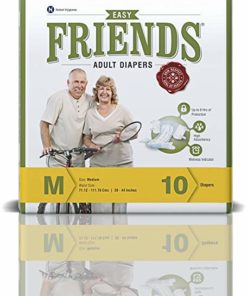 Friends Adult Diaper M
Friends Adult Diaper M 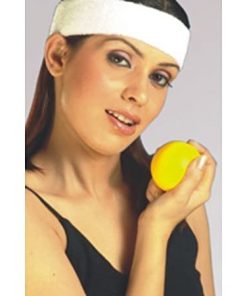 TYNOR Exercising Ball - Ortho
TYNOR Exercising Ball - Ortho 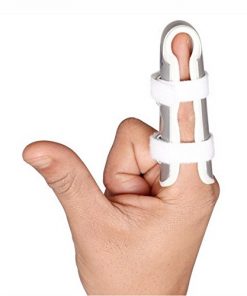 TYNOR Finger Cot - Large
TYNOR Finger Cot - Large 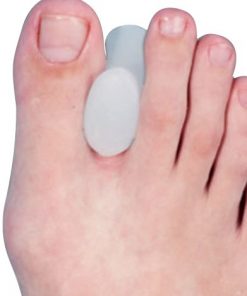 TYNOR Silicon Toe Separator - Small (Pair)
TYNOR Silicon Toe Separator - Small (Pair) 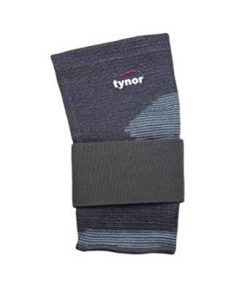 TYNOR Elbow Support - Medium
TYNOR Elbow Support - Medium 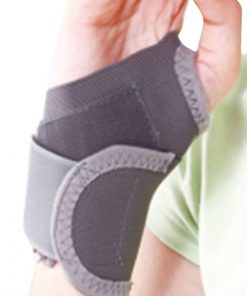 TYNOR Wrist Brace with Thumb - Universal
TYNOR Wrist Brace with Thumb - Universal 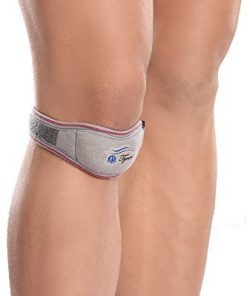 TYNOR D-19 Skin Friendly Pattelar Support- Universal size
TYNOR D-19 Skin Friendly Pattelar Support- Universal size 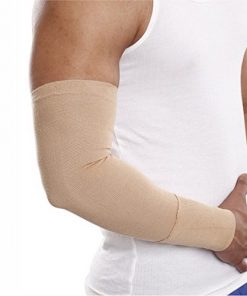 TYNOR Tubular Elastic Bandage - 1 meter (Beige, F-100mm)
TYNOR Tubular Elastic Bandage - 1 meter (Beige, F-100mm) 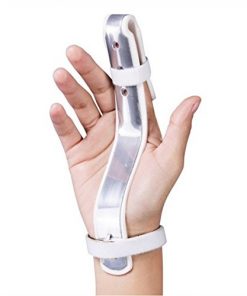 TYNOR Finger Extension Splint - Medium
TYNOR Finger Extension Splint - Medium 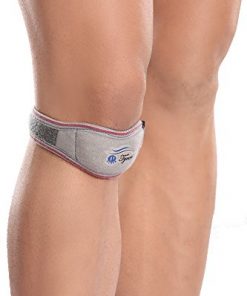 TYNOR Skin Friendly Pattelar Support- Universal size
TYNOR Skin Friendly Pattelar Support- Universal size 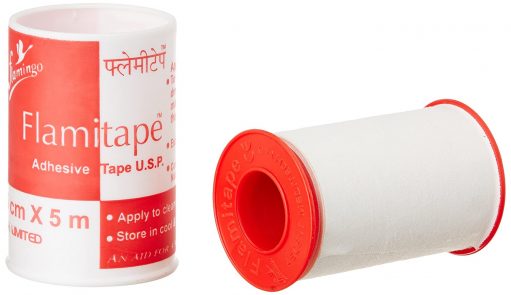 FLAMINGO Flamitape 7.5cm x 5m
FLAMINGO Flamitape 7.5cm x 5m 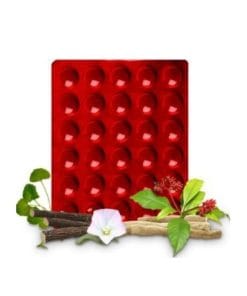 ZANDU Tribangshila Tablet
ZANDU Tribangshila Tablet 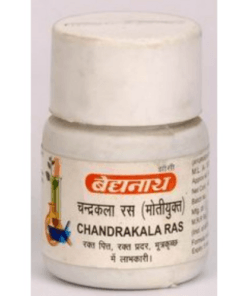 BAIDYANATH Chandrakala Ras Tablet
BAIDYANATH Chandrakala Ras Tablet 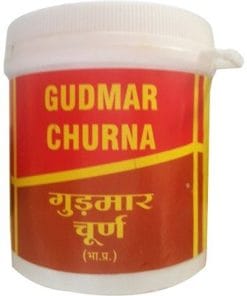 VYAS Gudmar Churna powder Pack of 2
VYAS Gudmar Churna powder Pack of 2  Sugar Free Natura Low Calorie Sucralose Sweetener 200 Pellets-Zydus Wellness Product Ltd
Sugar Free Natura Low Calorie Sucralose Sweetener 200 Pellets-Zydus Wellness Product Ltd 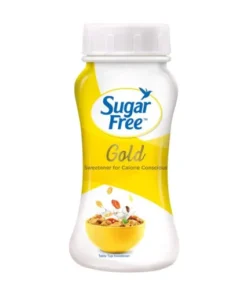 Sugar Free Gold Low Calorie Sweetener 100gm Zydus Wellness Product Ltd
Sugar Free Gold Low Calorie Sweetener 100gm Zydus Wellness Product Ltd 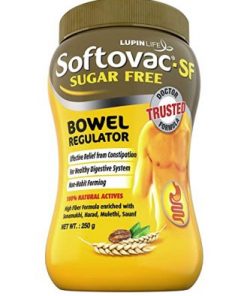 Softovac SF Sugar Free Bowel Regulator Powder-Lupin
Softovac SF Sugar Free Bowel Regulator Powder-Lupin 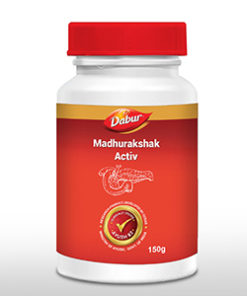 Dabur Madhurakshak Activ_DABUR INDIA
Dabur Madhurakshak Activ_DABUR INDIA  Perennial Lifesciences Organic Green Coffee Beans (Decaffeinated & Unroasted) Powder
Perennial Lifesciences Organic Green Coffee Beans (Decaffeinated & Unroasted) Powder 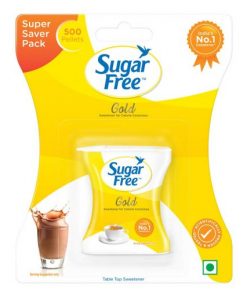 Sugar Free Gold Low Calorie Sweetener_Zydus Wellness
Sugar Free Gold Low Calorie Sweetener_Zydus Wellness 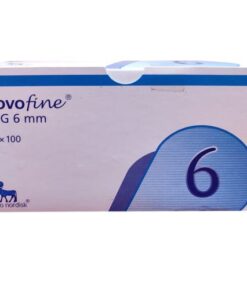 Novofine 31G Needle-1 Needle-Novo Nordisk India Pvt Ltd
Novofine 31G Needle-1 Needle-Novo Nordisk India Pvt Ltd 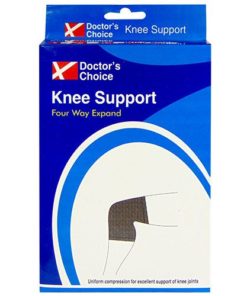 Doctors' Choice Sterile Disposable Surgical Latex Gloves 7.0
Doctors' Choice Sterile Disposable Surgical Latex Gloves 7.0 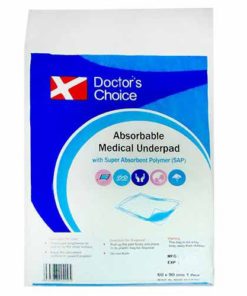 DOCTORS CHOICE Absorbable Medical Underpad 60 X 90 cms
DOCTORS CHOICE Absorbable Medical Underpad 60 X 90 cms 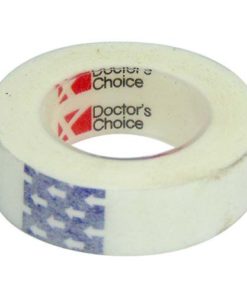 DOCTORS CHOICE Micropors Surgical tape 3 inch
DOCTORS CHOICE Micropors Surgical tape 3 inch 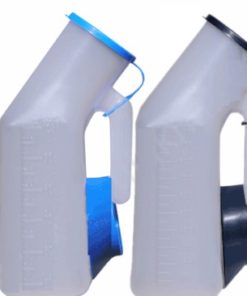 Naulakha Urine Pot for Male Pkt 27 2 IN 1 (Large)
Naulakha Urine Pot for Male Pkt 27 2 IN 1 (Large) 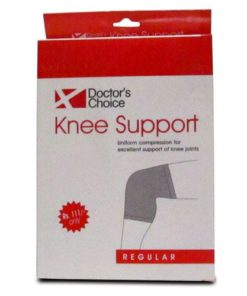 DOCTORS CHOICE Knee Support Regular Medium
DOCTORS CHOICE Knee Support Regular Medium 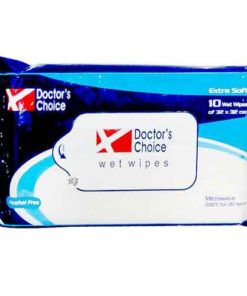 DOCTORS CHOICE Wet wipes Alcohol Free 10's
DOCTORS CHOICE Wet wipes Alcohol Free 10's 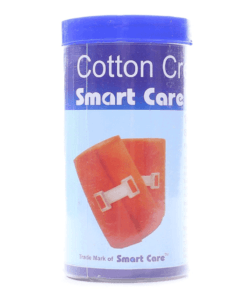 Smart Care Crepe Bandage Premium 6cm*4Mtr
Smart Care Crepe Bandage Premium 6cm*4Mtr 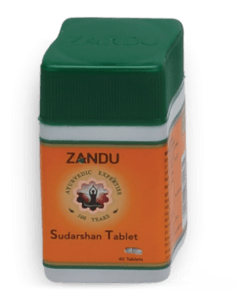 ZANDU Sudarshan Tablet
ZANDU Sudarshan Tablet 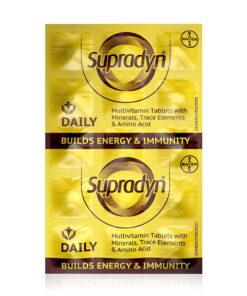 New & Improved Supradyn Daily Multivitamin Tablet_Bayer Pharma
New & Improved Supradyn Daily Multivitamin Tablet_Bayer Pharma 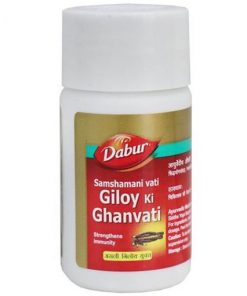 Dabur Giloy Ki Ghanvati tablet
Dabur Giloy Ki Ghanvati tablet 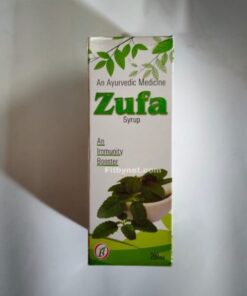 Zufa Syrup 200ml
Zufa Syrup 200ml 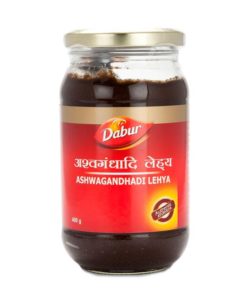 Dabur Ashwagandhadi Lehya_DABUR INDIA
Dabur Ashwagandhadi Lehya_DABUR INDIA 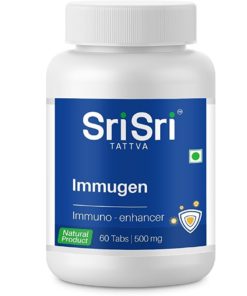 SRI SRI TATTVA Immugen 500mg Tablet
SRI SRI TATTVA Immugen 500mg Tablet  ZANDU Sudarshan Ghan Vati Pack of 2
ZANDU Sudarshan Ghan Vati Pack of 2 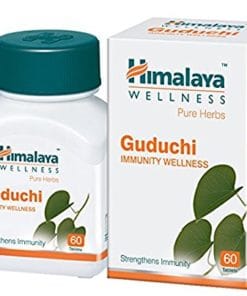 HIMALAYA Wellness Pure Herbs Guduchi Immunity Wellness Tablet
HIMALAYA Wellness Pure Herbs Guduchi Immunity Wellness Tablet 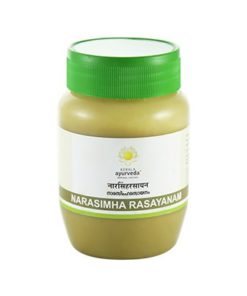 KERALA AYURVEDA Narasimha Rasayanam paste
KERALA AYURVEDA Narasimha Rasayanam paste  Patanjali Shatavar Churna
Patanjali Shatavar Churna  Control D Digital Thermometer 1 unit
Control D Digital Thermometer 1 unit  Aiqura AD801 Forehead Infra Red Thermometer 1 unit
Aiqura AD801 Forehead Infra Red Thermometer 1 unit  Dikang HGB01 Forehead Infra Red Thermometer 1 unit
Dikang HGB01 Forehead Infra Red Thermometer 1 unit  Landwind LW FT118 Non-Contact Digital Infra Red Thermometer 1 unit
Landwind LW FT118 Non-Contact Digital Infra Red Thermometer 1 unit  Health Sense JA 11A Yasee Digital Infra Red Thermometer 1 unit
Health Sense JA 11A Yasee Digital Infra Red Thermometer 1 unit 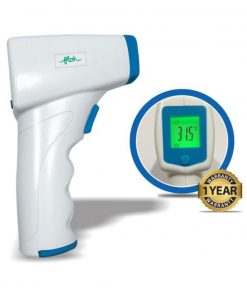 Floh Infra Red Thermometer 1 unit
Floh Infra Red Thermometer 1 unit  Jumper JPD FR202 Infra Red Thermometer 1 unit
Jumper JPD FR202 Infra Red Thermometer 1 unit  Dr.Sanaya IR988 Non Contact Infra Red Thermometer 1 unit
Dr.Sanaya IR988 Non Contact Infra Red Thermometer 1 unit  MCP Medical Infra Red Forehead Thermometer for Baby & Adult 1 unit
MCP Medical Infra Red Forehead Thermometer for Baby & Adult 1 unit  TYNOR Thigh Support - Large
TYNOR Thigh Support - Large 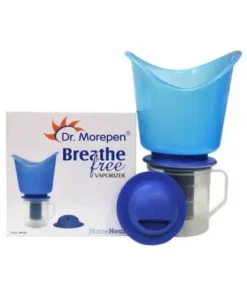 Dr Morepen Breathe Free Vaporizer VP 06-Morepen Laboratories Ltd
Dr Morepen Breathe Free Vaporizer VP 06-Morepen Laboratories Ltd 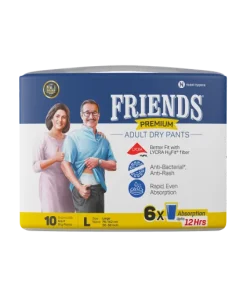 Friends Premium Adult Diaper Pants Medium-Nobel Hygiene Ltd
Friends Premium Adult Diaper Pants Medium-Nobel Hygiene Ltd  Omron Compressor Nebulizer NE-C106 White-Omron Healthcare India Pvt Ltd
Omron Compressor Nebulizer NE-C106 White-Omron Healthcare India Pvt Ltd 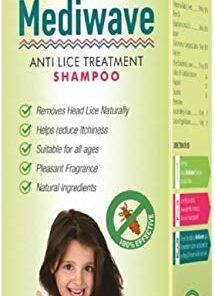 Mediwave Anti Lice Treatment Shampoo 50ml_Smart Laboratories
Mediwave Anti Lice Treatment Shampoo 50ml_Smart Laboratories  Navratna Ayurvedic Cool Hair Oil 100ml
Navratna Ayurvedic Cool Hair Oil 100ml 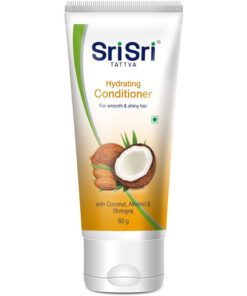 SRI SRI TATTVA Hydrating Conditioner Pack of 2
SRI SRI TATTVA Hydrating Conditioner Pack of 2 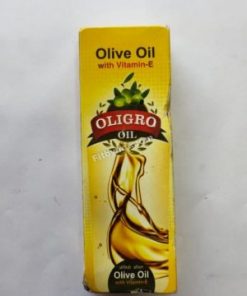 Oligro Oil-Leeford Healthcare Ltd
Oligro Oil-Leeford Healthcare Ltd 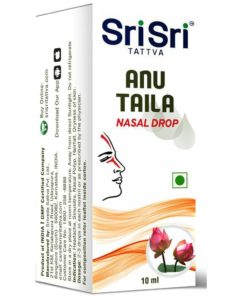 SRI SRI TATTVA Anu Taila Nasal Drops Pack of 2
SRI SRI TATTVA Anu Taila Nasal Drops Pack of 2 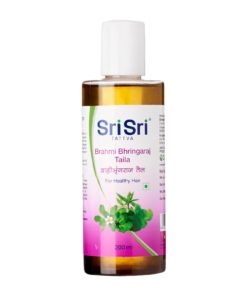 SRI SRI TATTVA Brahmi Bhringaraj Taila
SRI SRI TATTVA Brahmi Bhringaraj Taila 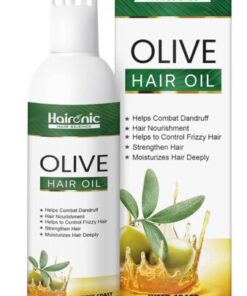 Haironic Oil
Haironic Oil  HealthVit Natural Amla (Emblica Officinal's) Powder
HealthVit Natural Amla (Emblica Officinal's) Powder 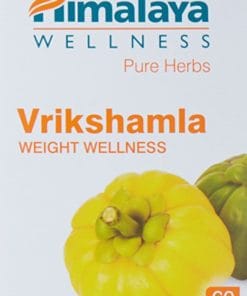 HIMALAYA Wellness Pure Herbs Vrikshamla Weight Wellness Tablet
HIMALAYA Wellness Pure Herbs Vrikshamla Weight Wellness Tablet  Majestic Green Coffee - for weight loose, without Milk & Suger - 25 Sachets (Pack of 1) for obesity
Majestic Green Coffee - for weight loose, without Milk & Suger - 25 Sachets (Pack of 1) for obesity 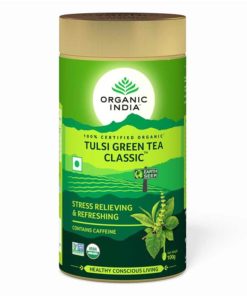 ORGANIC INDIA Tulsi Green Tea Tin Classic
ORGANIC INDIA Tulsi Green Tea Tin Classic  Abhay MEDARI Slim Fit Tablets Weight Loss Supplement and Effective Fatrid (60 Tablets) for obesity
Abhay MEDARI Slim Fit Tablets Weight Loss Supplement and Effective Fatrid (60 Tablets) for obesity  Slim Tabs Tablet-60 tablets-Unifarma Global Consumer Health Care Pvt Ltd
Slim Tabs Tablet-60 tablets-Unifarma Global Consumer Health Care Pvt Ltd  Neuherbs Organic Green Coffee Beans 200gm
Neuherbs Organic Green Coffee Beans 200gm  Kapiva Ayurveda Diafree Juice
Kapiva Ayurveda Diafree Juice 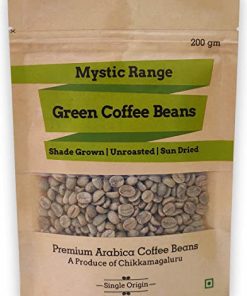 Mystic Range Premium Arabica Green Coffee Beans for Weight Loss | 100% Premium Arabica, Unroasted & best green coffee beans | Fat Burn, Healthy Skin & Detox (Pouch - 200 g) for obesity
Mystic Range Premium Arabica Green Coffee Beans for Weight Loss | 100% Premium Arabica, Unroasted & best green coffee beans | Fat Burn, Healthy Skin & Detox (Pouch - 200 g) for obesity 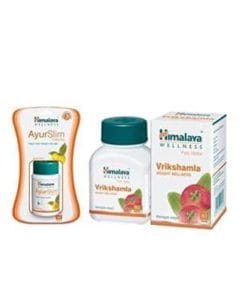 HIMALAYA Weight Management Combo PACK (Ayurslim 60 Capsules & Vrikshamla 60 Tablets)
HIMALAYA Weight Management Combo PACK (Ayurslim 60 Capsules & Vrikshamla 60 Tablets)  Amrita Lemon Herbal Tea
Amrita Lemon Herbal Tea  Alexvyan Slim CYSLIM Me Ayurvedic Herbal Extract 500mg Veggie 60 Capsules, Slim 100% Natural Maximum Potency 100% Lifetime Money Back Guarantee-order Risk Free! Reduce Fat for obesity
Alexvyan Slim CYSLIM Me Ayurvedic Herbal Extract 500mg Veggie 60 Capsules, Slim 100% Natural Maximum Potency 100% Lifetime Money Back Guarantee-order Risk Free! Reduce Fat for obesity 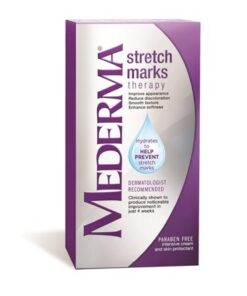 Mederma Stretch Marks Therapy 25gm_Win Medicare
Mederma Stretch Marks Therapy 25gm_Win Medicare 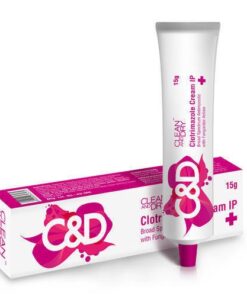 Clean & Dry Cream 15gm_Midascare Pharma
Clean & Dry Cream 15gm_Midascare Pharma 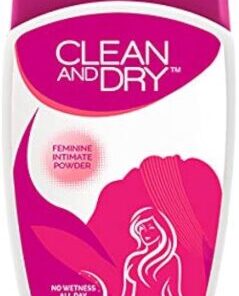 Clean and Dry Feminine Intimate Powder-100gm-MidasCare Pharmaceuticals Pvt Ltd
Clean and Dry Feminine Intimate Powder-100gm-MidasCare Pharmaceuticals Pvt Ltd 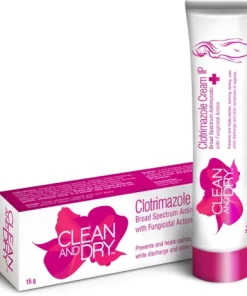 Clean and Dry Intimate Clotrimazole Cream 15GM-MidasCare Pharma
Clean and Dry Intimate Clotrimazole Cream 15GM-MidasCare Pharma 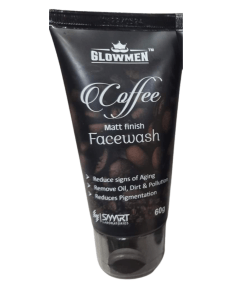 Glowmen Coffee Matt Finish Face Wash 60 gm-Smart Labs
Glowmen Coffee Matt Finish Face Wash 60 gm-Smart Labs  Sugar Free Gold Plus Sweetener 500 Pellets-Zydus Wellness Product Ltd
Sugar Free Gold Plus Sweetener 500 Pellets-Zydus Wellness Product Ltd  Dr Ortho Knee Cap
Dr Ortho Knee Cap 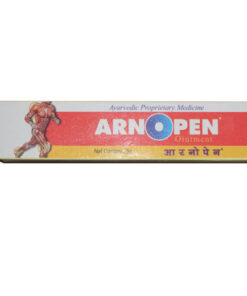 Arnopen Ointment 25gm-S G Phyto Pharma Pvt Ltd
Arnopen Ointment 25gm-S G Phyto Pharma Pvt Ltd  S Compound Capsule – Joint Pain & Arthritis Relief
S Compound Capsule – Joint Pain & Arthritis Relief 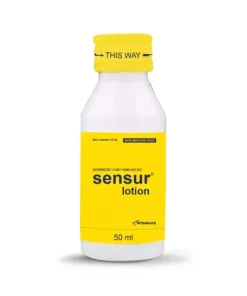 Sensur Lotion for pain relief 50ml-Integrace Pvt Ltd
Sensur Lotion for pain relief 50ml-Integrace Pvt Ltd  Allen Calcitone Calcium Syrup
Allen Calcitone Calcium Syrup 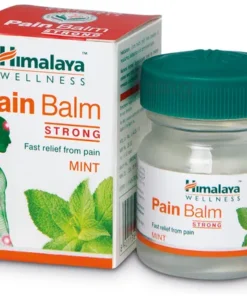 Himalaya Wellness Pain Balm Strong 10gm
Himalaya Wellness Pain Balm Strong 10gm 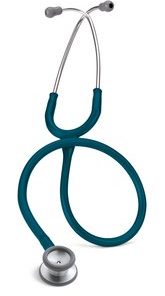 3M Littmann Classic II Pediatric Stethoscope, Caribbean Blue Tube, 28 inch, 2119
3M Littmann Classic II Pediatric Stethoscope, Caribbean Blue Tube, 28 inch, 2119  Sara Care Sarapore Microporus Tape (5 Meter)
Sara Care Sarapore Microporus Tape (5 Meter) 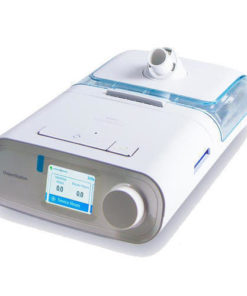 Philips Respironics CPAP Dreamstation Device
Philips Respironics CPAP Dreamstation Device 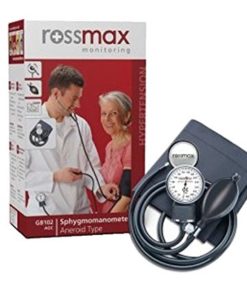 Rossmax GB101 Aneroid BP Monitor
Rossmax GB101 Aneroid BP Monitor 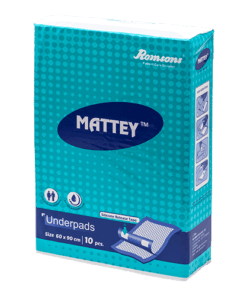 Romsons Mattey Underpads
Romsons Mattey Underpads 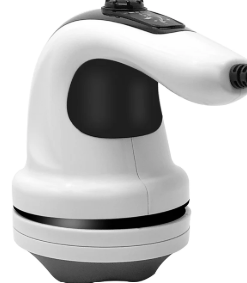 Dr Physio Manipol Massager-Nureca Limited, India
Dr Physio Manipol Massager-Nureca Limited, India 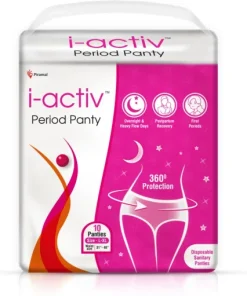 i-activ Period Panty L XL-Piramal Enterprises Ltd
i-activ Period Panty L XL-Piramal Enterprises Ltd 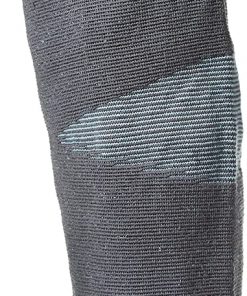 TYNOR Knee Cap with Patellar Ring - Small (Pair)
TYNOR Knee Cap with Patellar Ring - Small (Pair) 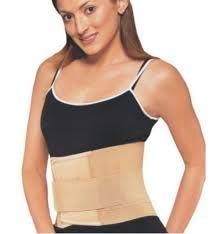 FLAMINGO Lumbar Sacro Belt XL
FLAMINGO Lumbar Sacro Belt XL 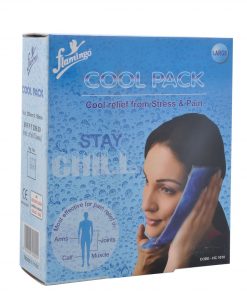 FLAMINGO HC-1010 Cool Pack L
FLAMINGO HC-1010 Cool Pack L 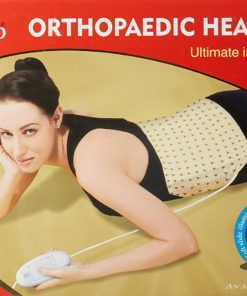 FLAMINGO Orthopaedic Heating Belt Mini
FLAMINGO Orthopaedic Heating Belt Mini  Moov Cool Therapy Gel 20GM-Reckitt Benckiser Healthcare Pvt. Ltd.
Moov Cool Therapy Gel 20GM-Reckitt Benckiser Healthcare Pvt. Ltd. 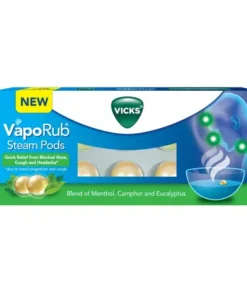 Vicks VapoRub Steam Pods-10 Capsules
Vicks VapoRub Steam Pods-10 Capsules 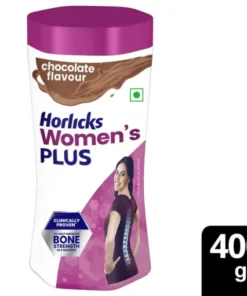 Horlicks Womens Plus Chocolate
Horlicks Womens Plus Chocolate 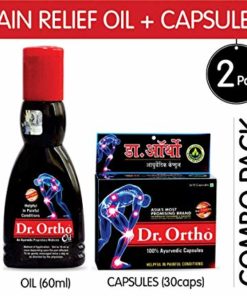 Dr Ortho Combo of Pain Relief Oil 120ml & Capsules 60
Dr Ortho Combo of Pain Relief Oil 120ml & Capsules 60 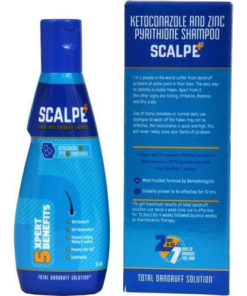 Scalpe Plus Anti Dandruff Shampoo_GLENMARK
Scalpe Plus Anti Dandruff Shampoo_GLENMARK 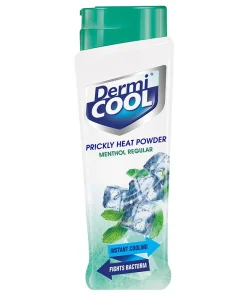 Dermi Cool Prickly Heat Menthol Regular Powder 400gm-Emami Ltd
Dermi Cool Prickly Heat Menthol Regular Powder 400gm-Emami Ltd  Glucon D Instant Energy Tangy Orange Health Drink
Glucon D Instant Energy Tangy Orange Health Drink  Elocon Lotion 10ml-Fulford India Ltd
Elocon Lotion 10ml-Fulford India Ltd 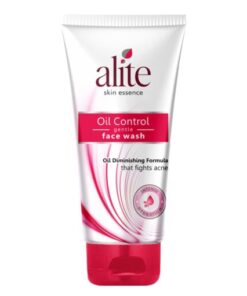 Alite Oil Control Gentle Face Wash 70gm-Leeford Healthcare Ltd
Alite Oil Control Gentle Face Wash 70gm-Leeford Healthcare Ltd 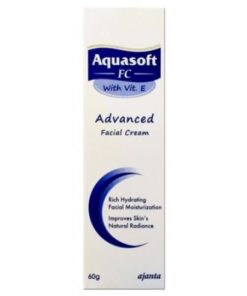 Aquasoft FC Advanced Facial Cream 60GM_Ajanta Pharma
Aquasoft FC Advanced Facial Cream 60GM_Ajanta Pharma 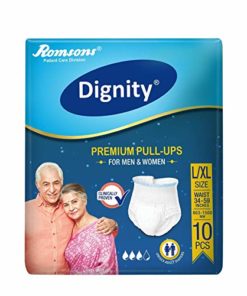 Dignity Premium Pull-Ups Adult Diaper L-XL
Dignity Premium Pull-Ups Adult Diaper L-XL 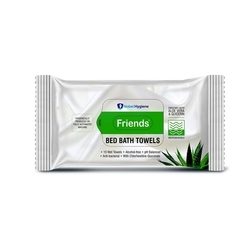 FRIENDS Bed Bath Towels
FRIENDS Bed Bath Towels 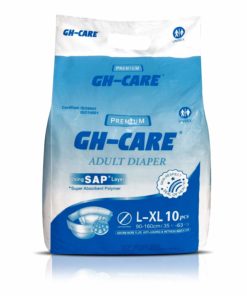 GH-CARE Adult Diaper L-XL
GH-CARE Adult Diaper L-XL 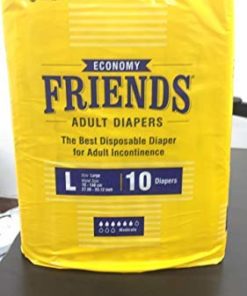 FRIENDS Economy Adult Diaper L
FRIENDS Economy Adult Diaper L 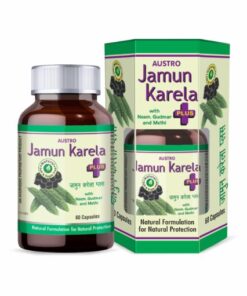 Jamun Karela Plus Capsule-Austro Labs
Jamun Karela Plus Capsule-Austro Labs 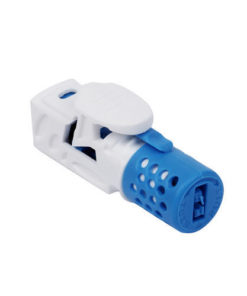 Control D Safety Lancets
Control D Safety Lancets 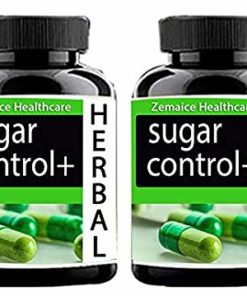 Sugar Control Plus Capsules Diabetes care_Zamaica Healthcare
Sugar Control Plus Capsules Diabetes care_Zamaica Healthcare  Deemark Diaba Plus Kit
Deemark Diaba Plus Kit  Supradyn Naturals Tablets with Iron, Ashoka and Shatavari-Bayer Pharmaceuticals Pvt Ltd
Supradyn Naturals Tablets with Iron, Ashoka and Shatavari-Bayer Pharmaceuticals Pvt Ltd  Electric Heating Bag
Electric Heating Bag  Brufen Power Metered Pain Relief Sprays 40gm-Abbott
Brufen Power Metered Pain Relief Sprays 40gm-Abbott 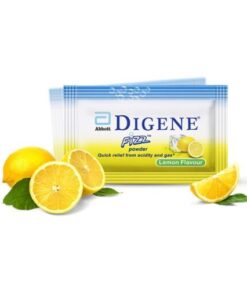 Digene Fizz Powder Lemon_ABBOTT
Digene Fizz Powder Lemon_ABBOTT  Trigaine solution-60 ml -Apple Therapeutics Pvt Ltd
Trigaine solution-60 ml -Apple Therapeutics Pvt Ltd  HIMALAYA Protein Hair Cream PACK of 2
HIMALAYA Protein Hair Cream PACK of 2 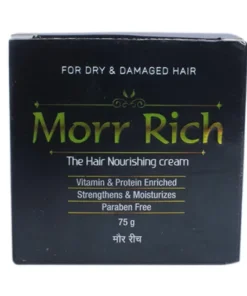 Morr Rich Cream_Intas Pharmaceuticals Ltd
Morr Rich Cream_Intas Pharmaceuticals Ltd  Wings Hair Shield Anti Lice Cream Wash
Wings Hair Shield Anti Lice Cream Wash 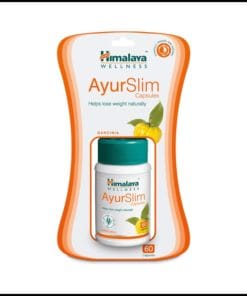 HIMALAYA Wellness AyurSlim Weight Management Capsule
HIMALAYA Wellness AyurSlim Weight Management Capsule 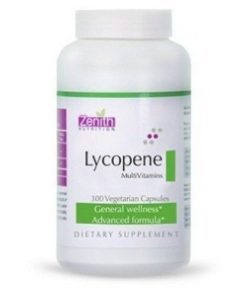 Zenith Nutrition Lycopene with Multivitamins Capsule
Zenith Nutrition Lycopene with Multivitamins Capsule 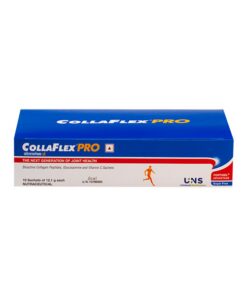 Collaflex Pro Sachet_Aristo Pharma
Collaflex Pro Sachet_Aristo Pharma 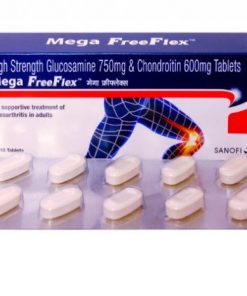 Mega FreeFlex Tablet_SANOFI INDIA
Mega FreeFlex Tablet_SANOFI INDIA  Imxia Plus Shampoo_KLM Labs
Imxia Plus Shampoo_KLM Labs 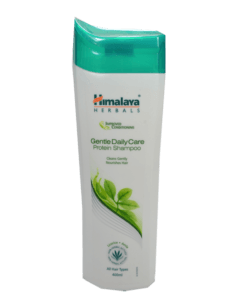 HIMALAYA Gentle Daily Care Protein Shampoo
HIMALAYA Gentle Daily Care Protein Shampoo 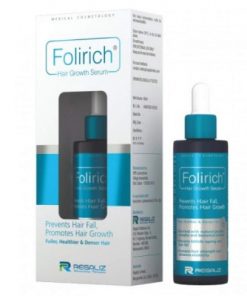 Folirich Hair Growth Serum_Regaliz India
Folirich Hair Growth Serum_Regaliz India  Paper Boat Juice Chilli Guava 250 ml
Paper Boat Juice Chilli Guava 250 ml  Patanjali Arjun Amla Juice
Patanjali Arjun Amla Juice 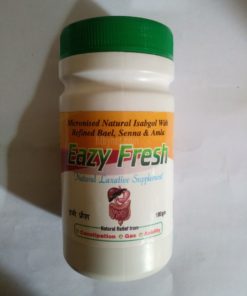 Eazy Fresh supplement_BS Biotech
Eazy Fresh supplement_BS Biotech  Patanjali Giloy Amala Juice
Patanjali Giloy Amala Juice  Patanjali Muesli Fruit and Nut
Patanjali Muesli Fruit and Nut 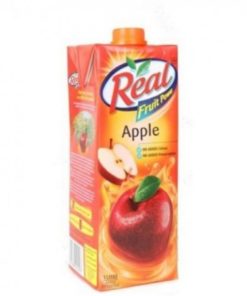 Real Fruit Juice Apple 1 L
Real Fruit Juice Apple 1 L 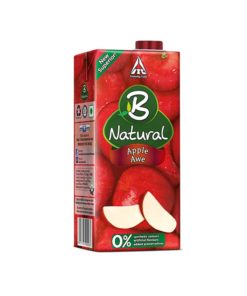 B Natural Apple Juice 1 L
B Natural Apple Juice 1 L  Tropicana Apple Delight Fruit Beverage 1 L
Tropicana Apple Delight Fruit Beverage 1 L 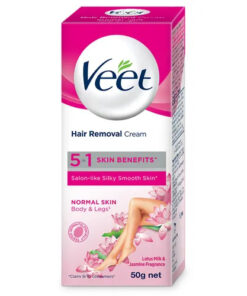 Veet 5 in 1 Hair Removal Cream for Normal Skin 50GM-Reckitt Benckiser
Veet 5 in 1 Hair Removal Cream for Normal Skin 50GM-Reckitt Benckiser  FIT WOMEN SOLUTION (for vaginal care)
FIT WOMEN SOLUTION (for vaginal care)  LEEUCOWIN CAPSULE (for abnormal white discharge)
LEEUCOWIN CAPSULE (for abnormal white discharge) 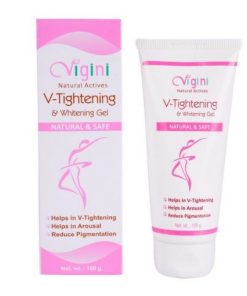 Vigini V Tightening & Whitening Gel_Global Medicare Inc
Vigini V Tightening & Whitening Gel_Global Medicare Inc 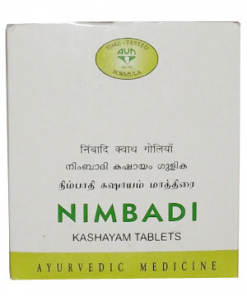 AVN NIMBADI KASHAYAM TABLET
AVN NIMBADI KASHAYAM TABLET 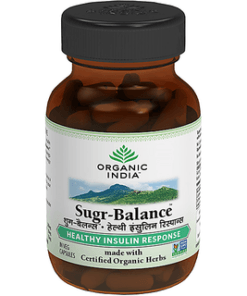 ORGANIC INDIA Sugr-Balance Capsule
ORGANIC INDIA Sugr-Balance Capsule  iAYUR Ashwagandha Extract Powder
iAYUR Ashwagandha Extract Powder 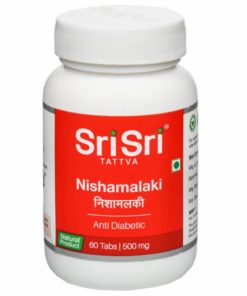 SRI SRI TATTVA Nishamalaki Tablet Pack of 2
SRI SRI TATTVA Nishamalaki Tablet Pack of 2 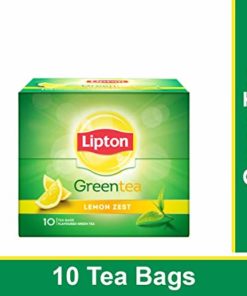 Lipton Lemon Zest Green Tea Bags, 13g (10 Pieces)
Lipton Lemon Zest Green Tea Bags, 13g (10 Pieces) 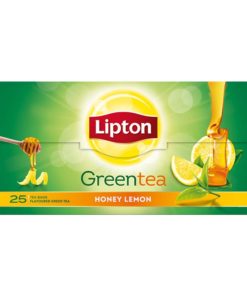 Lipton Lemon Zest Green Tea Bags, 25 Pieces
Lipton Lemon Zest Green Tea Bags, 25 Pieces 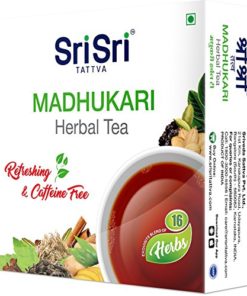 SRI SRI TATTVA Madhukari Herbal Tea Pack of 2
SRI SRI TATTVA Madhukari Herbal Tea Pack of 2 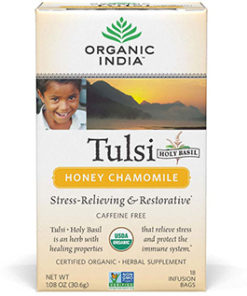 ORGANIC INDIA Tulsi Honey Chamomile Tea
ORGANIC INDIA Tulsi Honey Chamomile Tea 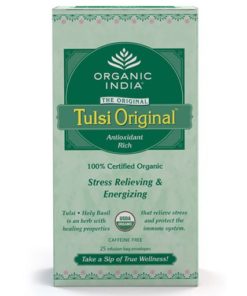 ORGANIC INDIA Tulsi Original Tea
ORGANIC INDIA Tulsi Original Tea 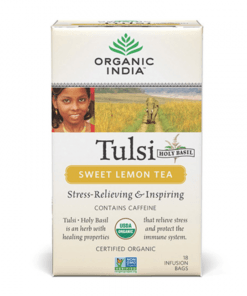 ORGANIC INDIA Tulsi Sweet Lemon Tea
ORGANIC INDIA Tulsi Sweet Lemon Tea 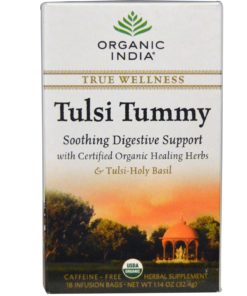 ORGANIC INDIA Tulsi Tummy Tea
ORGANIC INDIA Tulsi Tummy Tea 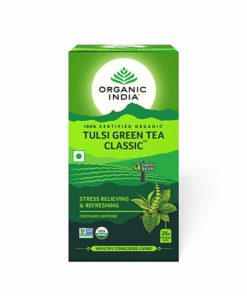 ORGANIC INDIA Tulsi Green Tea Classic
ORGANIC INDIA Tulsi Green Tea Classic 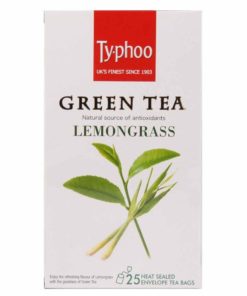 Typhoo Green Tea Lemon Grass Pack of 2
Typhoo Green Tea Lemon Grass Pack of 2 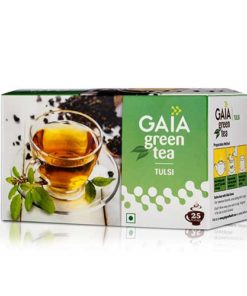 GAIA Tulsi Green Tea
GAIA Tulsi Green Tea 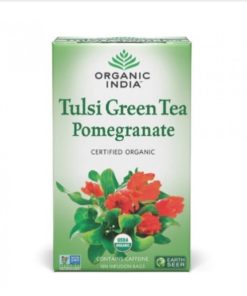 ORGANIC INDIA Tulsi Green Tea Pomegranete
ORGANIC INDIA Tulsi Green Tea Pomegranete 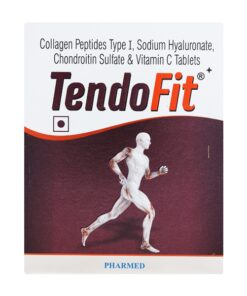 Tendofit Tablet_15 tablets_Pharmed Ltd
Tendofit Tablet_15 tablets_Pharmed Ltd  Morpheme Arthritis Support Capsule_Morpheme Remedies
Morpheme Arthritis Support Capsule_Morpheme Remedies 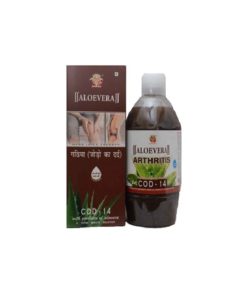 Axiom Aloevera Arthritis Cod 14 Juice
Axiom Aloevera Arthritis Cod 14 Juice 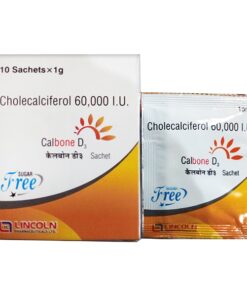 Calbone D3 60K Sachet 1gm-Lincoln Pharmaceuticals Ltd
Calbone D3 60K Sachet 1gm-Lincoln Pharmaceuticals Ltd  Cofsils Lozenges Honey lemon
Cofsils Lozenges Honey lemon  Cofsils Lozenges Lemon Ginger
Cofsils Lozenges Lemon Ginger  Honimist Cough Drop-8 Lozenges-Smart Labs
Honimist Cough Drop-8 Lozenges-Smart Labs  Quik Relif Inhaler 0.5ml-Leeford Healthcare Ltd
Quik Relif Inhaler 0.5ml-Leeford Healthcare Ltd  Curant Headache Relief Roll On
Curant Headache Relief Roll On  Vasu Zeal Kid Drop
Vasu Zeal Kid Drop  BAIDYANATH Kasamrit Herbal Syrup
BAIDYANATH Kasamrit Herbal Syrup 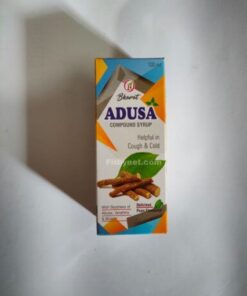 Adusa Compound Syrup
Adusa Compound Syrup  Dabur Honitus Syrup_DABUR INDIA
Dabur Honitus Syrup_DABUR INDIA  Multani Kuka Cough Syrup-Multani Pharmaceuticals Ltd
Multani Kuka Cough Syrup-Multani Pharmaceuticals Ltd  Trexgenics® WAISTCHECK 9X KETO Weight Loss Management with Carnipure 100mg(Lonza, Switzerland), Garcinia 60% 250mg, Green Coffee 50% 200mg,Green Tea 95% Polyphenols 150mg,Piperine 5mg,Chromium Picolinate 208mcg, Metabolism and Energy boost 3 Active B Vitamins B6 Active form P5P,B9 Folate, B12 Methylcobalamin(60 Veg. Capsules) for obesity
Trexgenics® WAISTCHECK 9X KETO Weight Loss Management with Carnipure 100mg(Lonza, Switzerland), Garcinia 60% 250mg, Green Coffee 50% 200mg,Green Tea 95% Polyphenols 150mg,Piperine 5mg,Chromium Picolinate 208mcg, Metabolism and Energy boost 3 Active B Vitamins B6 Active form P5P,B9 Folate, B12 Methylcobalamin(60 Veg. Capsules) for obesity  Simply Earth Green coffee Garcinia Cambogia & Green Coffee Bean Extracts - Weight loss supplement (60 Capsules) (In different Packs) for obesity
Simply Earth Green coffee Garcinia Cambogia & Green Coffee Bean Extracts - Weight loss supplement (60 Capsules) (In different Packs) for obesity 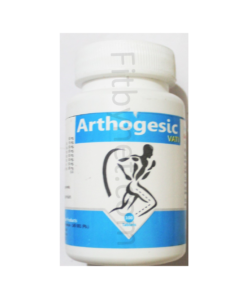 Arthogesic Vati tablet
Arthogesic Vati tablet  Collaflex Collagen Peptides Granules_Universal NutriScience
Collaflex Collagen Peptides Granules_Universal NutriScience 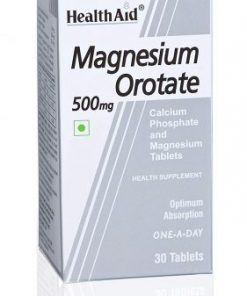 HealthVit Magnesium Orotate 500mg Tablet
HealthVit Magnesium Orotate 500mg Tablet 